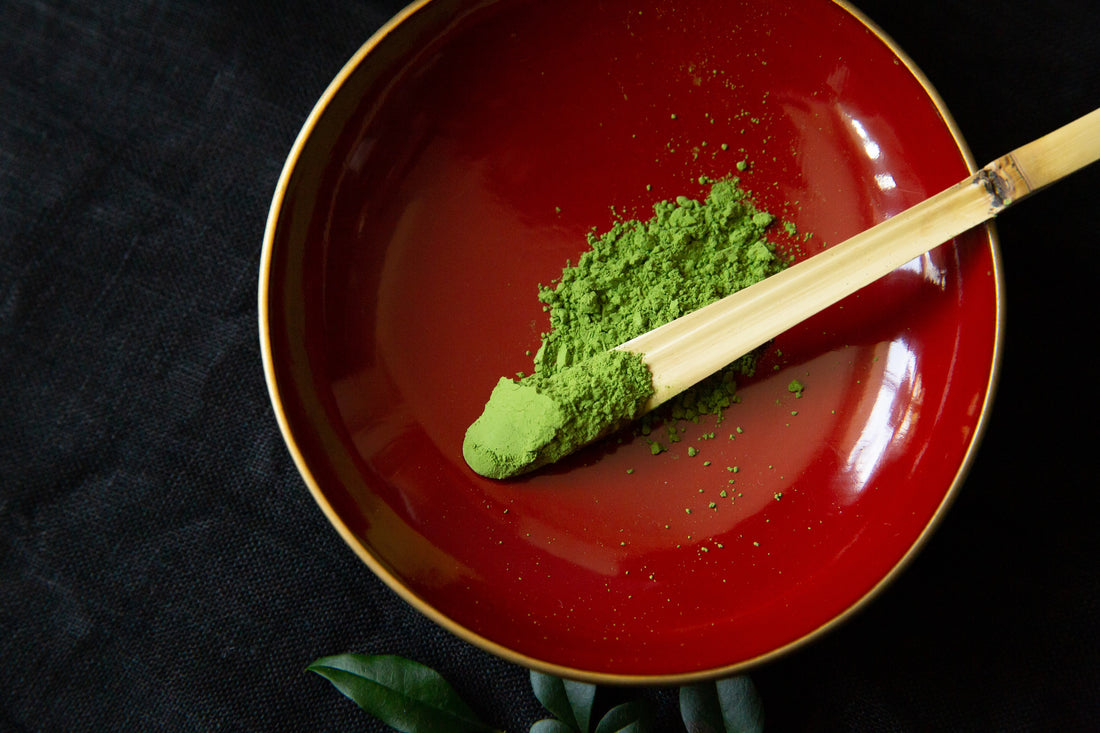
Exploring the Differences: Ceremonial Grade Matcha vs. Culinary Grade Matcha
Yggdrasil Leaf CompanyIntroduction
In recent years, matcha has surged in popularity, becoming a staple in many households and cafés worldwide. Known for its vibrant green hue and earthy flavor, matcha is not just a drink; it's a cultural experience. However, within the realm of matcha, there are two primary grades: ceremonial and culinary. Understanding the differences between these grades is crucial for anyone seeking to delve deeper into the world of matcha. In this blog post, we'll explore the nuances between ceremonial grade matcha and culinary grade matcha.
Shop Now - Organic Ceremonial Matcha by Yggdrasil Leaf Company

Ceremonial Grade Matcha: Ceremonial grade matcha is the highest quality matcha available, revered for its exquisite taste, vibrant color, and superior texture. Produced from the youngest tea leaves, typically the first harvest of the season, ceremonial grade matcha undergoes meticulous processing. The leaves are carefully shade-grown to enhance their chlorophyll content and hand-picked to ensure only the finest quality leaves are selected.
The production process for ceremonial grade matcha involves destemming and deveining the leaves before stone grinding them into a fine powder using traditional granite mills. This labor-intensive process results in a smooth, velvety texture that froths beautifully when whisked with hot water.

In terms of flavor, ceremonial grade matcha offers a delicate balance of umami sweetness and slight bitterness, with a lingering vegetal finish. Its aroma is fresh and grassy, evoking images of serene Japanese tea gardens. Ceremonial grade matcha is best enjoyed on its own, whisked with hot water in a bowl using a bamboo whisk, in a ceremony known as "chanoyu" or "the way of tea."
Organic Japanese Culinary Grade Matcha – Yggdrasil Leaf Company

Culinary Grade Matcha: On the other end of the spectrum, culinary grade matcha is more commonly used for cooking and baking purposes rather than for traditional tea ceremonies. While still made from high-quality tea leaves, culinary grade matcha is sourced from later harvests, resulting in a slightly coarser texture and a more pronounced bitterness.
The processing method for culinary grade matcha is similar to that of ceremonial grade matcha, but it may involve fewer steps and less meticulous attention to detail. Culinary grade matcha is often characterized by its stronger flavor profile, which can vary from robust and vegetal to slightly astringent, depending on the brand and origin.

Due to its more intense flavor and lower cost compared to ceremonial grade matcha, culinary grade matcha is commonly used in recipes for desserts, smoothies, lattes, and savory dishes. Its vibrant green color and distinct taste can add depth and complexity to a wide range of culinary creations.

Comparison
Comparison: When comparing ceremonial grade matcha and culinary grade matcha, several key differences emerge:
- Quality: Ceremonial grade matcha is of higher quality, with a smoother texture, more delicate flavor, and vibrant green color compared to culinary grade matcha.
- Intended Use: Ceremonial grade matcha is primarily used for traditional tea ceremonies and enjoyed on its own, while culinary grade matcha is more versatile and suitable for cooking, baking, and blending into various recipes.
- Flavor Profile: Ceremonial grade matcha offers a nuanced balance of sweetness and bitterness, whereas culinary grade matcha tends to have a stronger, more pronounced flavor with a slightly bitter edge.
- Price: Due to differences in quality and processing, ceremonial grade matcha is typically more expensive than culinary grade matcha.

Conclusion
Conclusion: In the world of matcha, the choice between ceremonial grade and culinary grade ultimately comes down to personal preference and intended use. Whether you're seeking a meditative tea experience or looking to elevate your culinary creations, both grades of matcha offer unique qualities and flavors that can enhance your enjoyment and appreciation of this beloved Japanese beverage. So, whether you're whisking up a frothy bowl of ceremonial grade matcha or experimenting with culinary grade matcha in your favorite recipes, embrace the diversity and richness that each grade has to offer.
